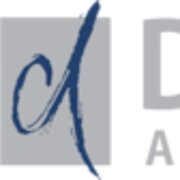Best Health insurance Lawyers in South Africa
Share your needs with us, get contacted by law firms.
Free. Takes 2 min.
Or refine your search by selecting a city:
List of the best lawyers in South Africa
About Health Insurance Law in South Africa
Health insurance in South Africa is a critical component of the nation's healthcare system, designed to cover the costs of private medical treatments. The private health sector is financed through medical aid schemes, which are regulated by the Medical Schemes Act of 1998. This Act ensures that all medical schemes operate responsibly, safeguarding members' rights and interests. Despite the presence of these schemes, many South Africans still face challenges accessing equitable healthcare services, making understanding your rights and options within the health insurance framework crucial.
Why You May Need a Lawyer
There are several situations where legal assistance might be required when dealing with health insurance issues in South Africa:
- Denial of Claim: If your health insurance provider denies your claim, a lawyer can help assess the situation and determine if the denial is unlawful.
- Complex Policy Terms: Understanding the intricate details of your insurance policy can be difficult, and legal advice can ensure you're fully aware of your rights and obligations.
- Dispute Resolution: Lawyers can assist in resolving disputes with insurance companies, ensuring that your case is handled with expertise and fairness.
- Fraud Accusations: Legal representation is crucial if you have been accused of committing fraud related to health insurance claims.
- Drafting and Reviewing Contracts: Ensuring that any health insurance policy or contract is in your best interest before signing is another scenario where legal counsel can be beneficial.
Local Laws Overview
The cornerstone of health insurance regulation in South Africa is the Medical Schemes Act of 1998. This act is designed to protect consumers by ensuring medical schemes are properly managed and financially sound. Key aspects include:
- Community Rating: Premiums cannot be determined by individual health status, age, or previous claims history, ensuring fairness in contribution costs.
- Prescribed Minimum Benefits (PMBs): All medical schemes must cover a defined set of benefits and emergencies, protecting members from being denied essential health services.
- Risk Equalization: Schemes are required to maintain financial reserves, ensuring that they can meet members' claims and continue providing coverage.
- Open Enrollment: Medical schemes must accept any applicant wanting to join, ensuring wide accessibility to insurance coverage.
Frequently Asked Questions
What is the Medical Schemes Act, and why is it important?
The Medical Schemes Act governs the operations of medical schemes in South Africa, ensuring they are fair and offer minimum health benefits.
What are Prescribed Minimum Benefits (PMBs)?
PMBs are a list of conditions and treatments that every medical scheme must cover, intended to protect everyone from life-threatening, chronic, and catastrophic health conditions.
Can a health insurer reject my application based on my health status?
No, health insurers in South Africa cannot reject your application based on your health status due to open enrollment laws.
How can I resolve a dispute with my health insurer?
If you cannot resolve a dispute directly with your insurer, you can escalate the issue to the Council for Medical Schemes or seek legal assistance.
Are health insurance premiums based on income?
No, South African health insurance premiums are community-rated, meaning they are not based on an individual’s income but rather spread across the larger insured population.
What steps should I take if my claim is denied?
First, review your policy documents and denial letters. Then, contact your insurer for clarification. If unresolved, consider legal advice or filing a complaint with the Council for Medical Schemes.
Why are exclusions part of my health insurance policy?
Exclusions often exist for risk management, defining which services won't be covered due to pre-existing conditions, unapproved providers, or non-essential treatments.
Is it mandatory to have health insurance in South Africa?
No, it's not mandatory to have health insurance; however, it is beneficial as public healthcare facilities can be overburdened and under-resourced.
Can I switch my health insurance provider easily?
Yes, but be mindful of any waiting periods and cross-check coverage and costs before switching to a new provider.
What does 'waiting period' mean in health insurance?
Waiting periods are specific durations after enrolling during which certain claims will not be paid. It's essential to understand these periods as defined by your policy.
Additional Resources
For further assistance and information, consider reaching out to these organizations:
- The Council for Medical Schemes - regulates medical schemes and can assist with complaints and queries.
- The Health Market Inquiry - provides insights into health insurance regulations and market practices.
- South African Private Practitioners Forum - a resource for private healthcare practitioners and patients.
- Legal Aid South Africa - offers a range of legal services to qualifying individuals.
Next Steps
If you find yourself needing legal assistance with health insurance issues, here are steps to get started:
- Document all communications and relevant documents regarding your situation.
- Consult with a lawyer who specializes in health insurance law to evaluate your case.
- Consider mediation or arbitration if your lawyer suggests it could resolve the issue efficiently.
- Follow legal advice to ensure your rights are protected and pursue further action if necessary.
Taking these steps can help ensure that you navigate the complexities of health insurance law effectively.
Lawzana helps you find the best lawyers and law firms in South Africa through a curated and pre-screened list of qualified legal professionals. Our platform offers rankings and detailed profiles of attorneys and law firms, allowing you to compare based on practice areas, including Health insurance, experience, and client feedback.
Each profile includes a description of the firm's areas of practice, client reviews, team members and partners, year of establishment, spoken languages, office locations, contact information, social media presence, and any published articles or resources. Most firms on our platform speak English and are experienced in both local and international legal matters.
Get a quote from top-rated law firms in South Africa — quickly, securely, and without unnecessary hassle.
Disclaimer:
The information provided on this page is for general informational purposes only and does not constitute legal advice. While we strive to ensure the accuracy and relevance of the content, legal information may change over time, and interpretations of the law can vary. You should always consult with a qualified legal professional for advice specific to your situation.
We disclaim all liability for actions taken or not taken based on the content of this page. If you believe any information is incorrect or outdated, please contact us, and we will review and update it where appropriate.
Browse health insurance law firms by city in South Africa
Refine your search by selecting a city.

















